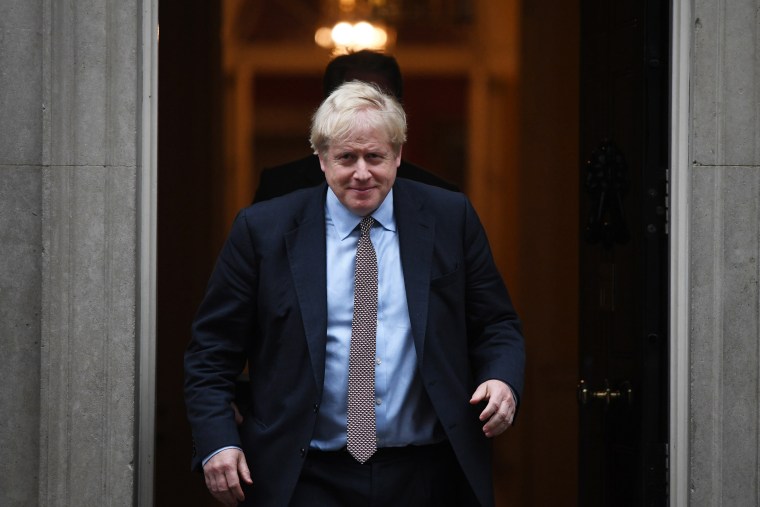LONDON — Prime Minister Boris Johnson called on Thursday for a general election on Dec. 12 to break Britain's Brexit impasse, a goal the leader has sought but so far failed to push through parliament.
Johnson said in a letter to opposition Labour leader Jeremy Corbyn he would hand parliament more time to approve his Brexit deal but that lawmakers must back a December election, Johnson's third attempt to try to force a snap poll.
Just a week before Britain was due to leave the European Union, the bloc looked set to grant Johnson a Brexit delay, something he has repeatedly said he does not want but was forced to request by the country's divided parliament.
An election is seen by his team as the only way of breaking the deadlock over Brexit after parliament voted in favor of his deal, but then, just minutes later, rejected his preferred timetable which would have met his Oct. 31 deadline.
But he has twice failed before to win the votes in parliament for an election, where he needs the support of two-thirds of its 650 lawmakers. The main opposition Labour Party has repeatedly said it will only back an election when it is sure that he cannot lead Britain out of the EU without a deal.
"We will make available all possible time between now and 6 November for the WAB (Withdrawal Agreement Bill) to be discussed and voted through ... this means we could get Brexit done before the election on 12 December," Johnson wrote in a letter to Corbyn, posted on Twitter.
"But if parliament refuses to take this chance and fails to ratify by the end of 6 November, as I fear it will, then the issue will have to be resolved by a new parliament."
More than three years after voting 52%-48% to be the first sovereign country to leave the European project, the future of Brexit is as unclear as ever with Britain still debating when, how or even whether it should go ahead.
Johnson won the top job in July by staking his career on getting Brexit done by Oct. 31, though he is almost certain to fail to do that after parliament defeated his proposed legislative timetable on Tuesday.
